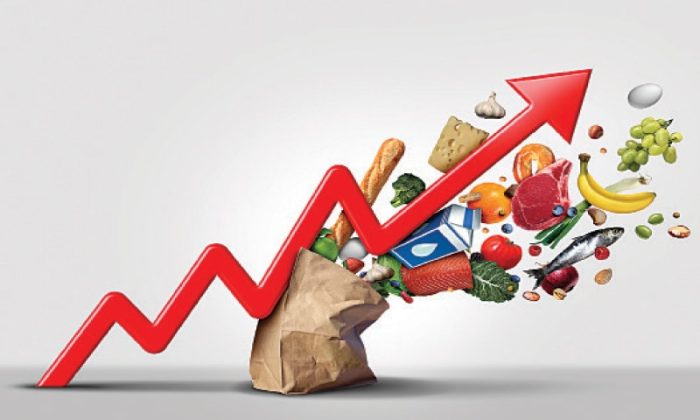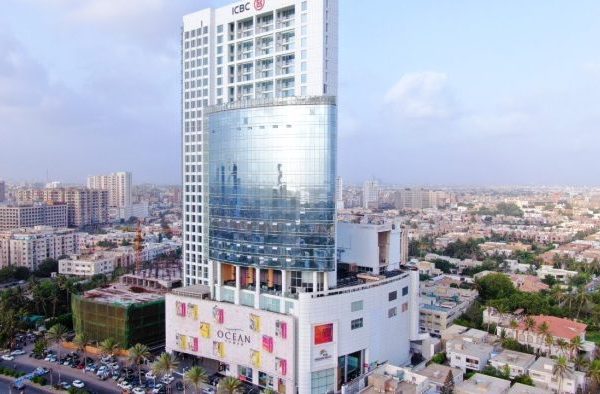Inflation is an economic phenomenon characterized by a sustained rise in the average cost of goods and services over time. Pakistan’s economy has long grappled with inflation, driven by various factors that influence the country’s overall economic stability. This article provides an overview of inflation, its causes in Pakistan, and its impact on the real estate market in the country.
What Is Inflation?
Inflation is defined as a continuous upward trend in the average cost of goods and services over a specified period. It signifies a decline in the value of money as a medium of exchange. Several factors contribute to inflation, including increased money supply, reduced availability of goods and services, and rising consumer demand. In Pakistan, the Consumer Price Index (CPI) is commonly used to measure inflation, tracking the prices of a selected basket of goods and services over time. Inflation can affect the economy both positively and negatively, influencing consumer behavior, business investment, interest rates, and overall economic confidence.
Overview of Inflation in Pakistan:
One of the primary drivers of inflation in Pakistan is the rapid growth of the money supply, often due to the government’s need to finance budget deficits. Additionally, shortages of essential goods and services, such as electricity, gas, and food, have also significantly contributed to inflationary pressures in the country. As a consequence, inflation has eroded the purchasing power of the Pakistani rupee, leading to a decline in the standard of living for many households. Moreover, it has resulted in higher interest rates, making borrowing more expensive for individuals and businesses. To combat inflation, the government of Pakistan has taken various measures, such as tightening monetary policy, reducing budget deficits, and implementing structural reforms to enhance the supply of goods and services. However, despite these efforts, inflation remains a persistent challenge that requires sustained attention from all stakeholders. The annual inflation rate in Pakistan eased for the first time in seven months to 29.4% in June 2023 from a record high of 38% in the previous month
Causes of Inflation in Pakistan
Inflation is a persistent challenge that has affected Pakistan’s economy for many years. Several factors contribute to the inflationary pressures in the country, impacting the cost of living for its citizens and posing significant challenges for policymakers. Below are the major causes of inflation in Pakistan, along with their implications for the economy:
1. Increase in Money Supply:
The money supply refers to the total amount of money circulating in the economy. When the money supply increases rapidly, it can lead to higher demand for goods and services, which, in turn, drives up prices. In Pakistan, one of the primary causes of inflation is the government’s practice of printing money to cover budget deficits. As more money is injected into the economy, it leads to an expansion in the money supply, fueling inflationary pressures.
Implications:
Rapidly increasing money supply without corresponding economic growth can result in demand-pull inflation, where too much money chases too few goods, leading to price increases.
2. Shortage of Goods and Services:
Pakistan heavily relies on imports for various necessities such as food, gas, and oil. Shortages or disruptions in the supply chain of these essential commodities can lead to price increases, further contributing to inflation. Additionally, the energy crisis in Pakistan, characterized by an insufficient power supply, affects the overall output of goods and services, leading to reduced supply and higher prices.
Implications:
Shortages and supply constraints can lead to cost-push inflation, where rising production costs are passed on to consumers in the form of higher prices.
3. Increase in Production Costs:
Rising production costs, resulting from factors such as inadequate infrastructure investment, high energy prices, and transportation expenses, have a direct impact on the prices of goods and services. When businesses face higher production costs, they may pass on these additional expenses to consumers, resulting in inflation.
Implications:
Increased production costs can lead to cost-push inflation, which can erode the purchasing power of consumers and reduce their standard of living.
4. Currency Devaluation:
The depreciation of the Pakistani rupee against other currencies significantly contributes to inflation in the country. When the value of the rupee weakens, the prices of imported goods rise, as it takes more rupees to purchase the same quantity of foreign currency. Since Pakistan heavily relies on imports, a weaker currency leads to higher prices of imported items, exacerbating inflation.
Implications:
Currency devaluation can lead to imported inflation, as higher import prices are passed on to consumers, affecting the overall cost of living.
Conclusion:
Inflation in Pakistan is driven by a combination of factors, including the rapid increase in the money supply, shortages of essential goods and services, rising production costs, and currency devaluation. Addressing inflation requires comprehensive policy measures and sustained efforts from the government and relevant stakeholders. Controlling the money supply, investing in infrastructure, ensuring an adequate supply of goods and services, and managing exchange rate fluctuations are essential steps to tackle inflation and promote economic stability in Pakistan. Moreover, implementing measures to enhance domestic production, reduce import dependency, and foster a competitive business environment can also help mitigate inflationary pressures and improve the overall economic outlook of the country.
FAQs The Causes and Impact of Inflation in Pakistan
What is inflation, and why is it a concern for Pakistan’s economy?
Inflation refers to the sustained increase in the average price level of goods and services over time. For Pakistan’s economy, inflation is a concern as it can erode the purchasing power of consumers, lead to reduced living standards, and create economic instability.
What are the major causes of inflation in Pakistan?
The major causes of inflation in Pakistan include the rapid increase in the money supply, shortages of goods and services (especially essential imports), rising production costs, and currency devaluation.
How does the increase in money supply contribute to inflation in Pakistan?
An increase in the money supply results in higher demand for goods and services, leading to price increases. The Pakistani government’s practice of printing money to cover budget deficits contributes to the expansion of the money supply and fuels inflationary pressures.
How do shortages of goods and services impact inflation in Pakistan?
Pakistan heavily relies on imports for essential commodities like food, gas, and oil. Shortages or disruptions in the supply chain of these necessities can lead to price increases, contributing to inflation. Additionally, the energy crisis in Pakistan, characterized by an insufficient power supply, reduces the overall output of goods and services, leading to reduced supply and higher prices.
Why do rising production costs lead to inflation in Pakistan?
Rising production costs, attributed to factors like inadequate infrastructure investment and high energy prices, directly affect the prices of goods and services. Businesses may pass on these additional expenses to consumers, leading to inflation.
How does currency devaluation impact inflation in Pakistan?
Currency devaluation occurs when the value of the Pakistani rupee weakens against other currencies. A weaker currency leads to higher prices of imported goods, as more rupees are needed to purchase the same quantity of foreign currency. Since Pakistan relies heavily on imports, currency devaluation exacerbates inflation by increasing the prices of imported items.
What are the implications of inflation on Pakistan’s economy?
Inflation can have various implications on Pakistan’s economy, such as eroding the purchasing power of consumers, reducing living standards, increasing production costs for businesses, and impacting investment decisions. It can also lead to higher interest rates and reduce consumer and business confidence, affecting overall economic stability.
How can Pakistan address inflation and promote economic stability?
To address inflation, Pakistan can adopt comprehensive policy measures, including controlling the money supply, investing in infrastructure, promoting domestic production, reducing import dependency, and managing exchange rate fluctuations. Moreover, implementing structural reforms and fostering a competitive business environment can contribute to mitigating inflationary pressures and improving the overall economic outlook of the country.




